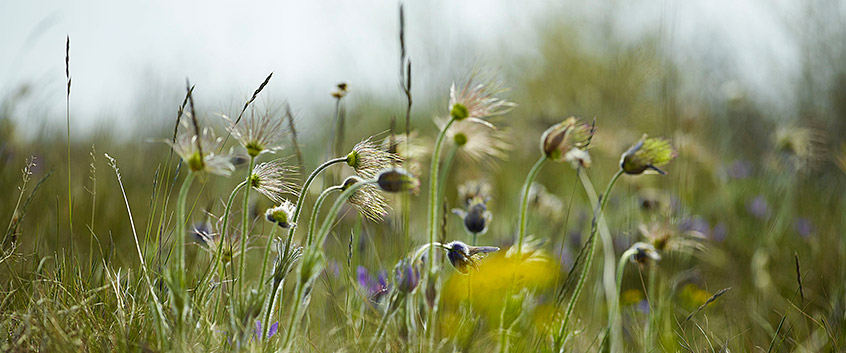
Department of Community Ecology
How are species diversity and ecosystem stability interrelated? What is the impact of land use change and climate change on individuals, species, communities and ecosystems? What are the causes and consequences of biological invasions? Which biodiversity parameters are useful as indicators of the status of ecosystems? How can the state of biodiversity be measured and explained by experiments?
The scientists at the Department of Community Ecology seek answers to these and other questions because biodiversity is fundamental to human livelihood. It ensures not only our food supply, but also the health and welfare of people in general. Therefore, we face the major challenge of determining the scientific principles and concepts for the sustainable use and protection of biodiversity (species, habitats and ecosystems).
A characteristic of the research of the Department of Community Ecology is the merging of animal and plant ecology, and of population and community ecology. Natural and anthropogenic local, regional and global changes in biodiversity are analysed and evaluated. Understanding these changes is an important prerequisite for the scientific understanding of biodiversity as well as for the potential to manage it systematically. The Department develops scientific principles to explain functional relationships in populations, communities and ecosystems. The impact of global change on biodiversity is the central scientific challenge for us. To meet this challenge, we set up experiments on the impact of climate and land use change and on the impact of invasive species, develop the basis for monitoring networks, analyse large volumes of biodiversity data, and use models and scenarios to predict the dynamics of biodiversity and ecosystems in the future.
On this basis we are engaged in providing policy advice, information to the public on the subject of biodiversity management and protection and we propose utilisation concepts, restoration methods and conservation measures .
More information
- Experimental station Bad Lauchstädt: web page
- Global Change Experimental Facility (GCEF): web page
- Database BiolFlor: web page
- European Network for Long-Term Ecological Research (LTER-Europe): web page
- German Network for Long-Term Ecological Research (LTER-D): web page
- European Ecological Federation (EEF): web page
- Butterfly Monitoring Germany (TMD): web page
- Butterfly Conservation Europe (BCE):
web page
